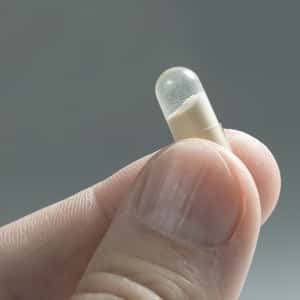
IBS, irritable bowel syndrome, afflicts an estimated 40 million Americans. They suffer cramps, bloating, diarrhea or constipation as a result of this condition, although gastroenterologists generally can find no disease. The digestive disease specialists sometimes classify IBS as a “functional” digestive problem, aka psychosomatic. Some research suggests that a regular probiotic supplement could make a difference for IBS symptoms (Journal of Gastroenterology and Hepatology, Jan. 2014). Other studies, however, give rise to skepticism about this treatment ( Neurogastroenterology and Motility, July 2017).
Will a Probiotic Supplement Cause Side Effects?
Q. Over a year ago, I asked the nurse at my gastroenterologist’s office about my frequent soft stool explosions. She suggested I take a probiotic, which I have done ever since. In about 60 days, the explosions stopped and have not returned. Does your research show any side effects from a daily over-the-counter dose of probiotics?
A. We don’t know, of course, exactly what was causing your bowel problems. When we checked the medical literature, we found numerous studies suggesting benefits from probiotics.
One systematic review concluded:
“The restoration of microbial diversity [after H. pylori eradication] is improved by probiotic supplementation. Understanding the long-term impacts of these therapies on gut health is essential for refining treatment strategies…” (Frontiers in Cellular and Infection Microbiology, July 7, 2025).
Other scientists appear to agree that more long-term studies are needed. You could experiment with a “probiotic holiday” for a few weeks to see if your symptoms return. If not, you might not need to keep taking the probiotic.
Taking a Probiotic Supplement for IBS:
Q. I am 57 and recently began taking a probiotic supplement for IBS symptoms I have had most of my adult life. The probiotic has helped tremendously.
I have also always suffered with generalized anxiety. The probiotic seems to have had a positive effect on my anxiety level. I wish I had discovered it years ago.
What Are Probiotics?
A. Probiotics are beneficial bacteria that are taken to improve health. The bacteria themselves may be administered in foods, such as yogurt with live cultures, or in capsules. Most probiotic supplements contain several species of bacteria, with billions of “colony forming units” per dose.
Many investigators have concluded that “probiotics” are not substitutable. Not all bacterial species work equally well for every condition. Even gastrointestinal disorders do not respond equally to probiotic treatment, although many do (Preventive Nutrition and Food Science, Sep. 30, 2024). This review included 36 placebo-controlled trials of people with digestive disease taking probiotics. 24 of the studies found that quality of life was improved; 12 identified no difference.
Probiotics for Psychological Symptoms:
Scientists have begun to pay attention to important links between the brain and the digestive tract (Gastroenterology Clinics of North America, March 2017). The gut-microbiome-brain axis creates such links. Probiotics might be able to alter the microbiome. Consequently, studies have examined whether probiotic supplements improve mood or anxiety.
A review of seven studies found evidence that probiotics can improve psychological symptoms (Journal of Alternative and Complementary Medicine, April 2017). Researchers are looking into ways that the microbes in the digestive tract can be altered to help prevent and treat disorders such as anxiety and depression (Brain, Behavior, and Immunity, Nov. 2017).
Citations
- Yoon JS et al, "Effect of multispecies probiotics on irritable bowel syndrome: a randomized, double-blind, placebo-controlled trial." Journal of Gastroenterology and Hepatology, Jan. 2014. DOI: 10.1111/jgh.12322
- Hod K et al, "A double-blind, placebo-controlled study to assess the effect of a probiotic mixture on symptoms and inflammatory markers in women with diarrhea-predominant IBS." Neurogastroenterology and Motility, July 2017. DOI: 10.1111/nmo.13037
- Albush A et al, "The impact of Helicobacter pylori infection and eradication therapies on gut microbiota: a systematic review of microbial dysbiosis and its implications in gastric carcinogenesis." Frontiers in Cellular and Infection Microbiology, July 7, 2025. DOI: 10.3389/fcimb.2025.1592977
- Moludi J et al, "The efficacy of probiotics supplementation on the quality of life of patients with gastrointestinal disease: A systematic review of clinical studies." Preventive Nutrition and Food Science, Sep. 30, 2024. DOI: 10.3746/pnf.2024.29.3.237
- Dinan TG & Cryan JF, "The microbiome-gut-brain axis in health and disease." Gastroenterology Clinics of North America, March 2017. DOI: 10.1016/j.gtc.2016.09.007
- McKean J et al, "Probiotics and subclinical psychological symptoms in healthy participants: A systematic review and meta-analysis." Journal of Alternative and Complementary Medicine, April 2017. DOI: 10.1089/acm.2016.0023
- Rieder R et al, "Microbes and mental health: A review." Brain, Behavior, and Immunity, Nov. 2017. DOI: 10.1016/j.bbi.2017.01.016

